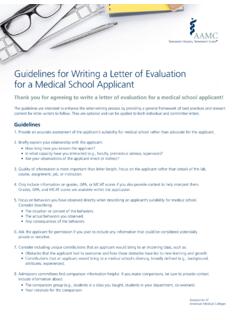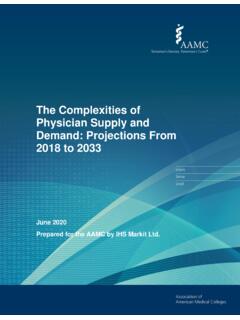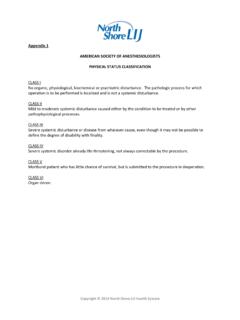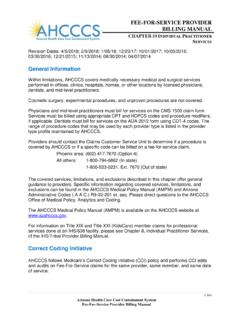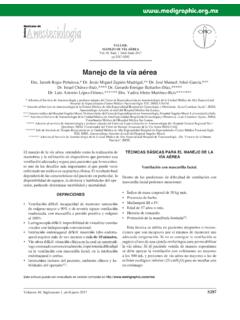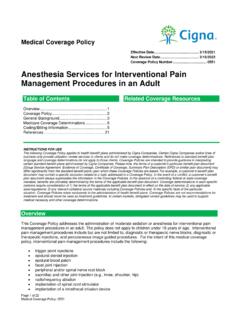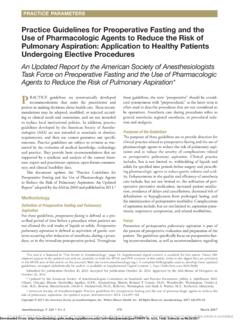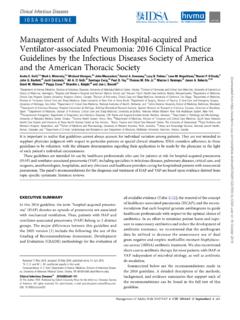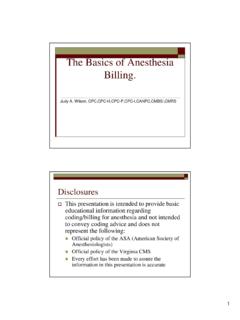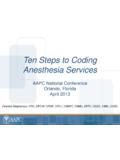Transcription of Workshop Preparation and Presentation
1 GWIMS ToolkitWorkshop Preparation and Presentation A Valuable Form of Scholarship for the Academic PhysicianGWIMS ToolkitAuthorsCarla , Professor of MedicineUniversity of Pittsburgh School of MedicineRachel , Professor of MedicineUniversity of Nebraska College of MedicineMelissa McNeil , of Medicine, Obstetrics, Gynecology, and Reproductive SciencesUniversity of Pittsburgh School of MedicineAbby Spencer , Professor of MedicineAllegheny General HospitalTemple University School of MedicineMegan McNamara , Professor of MedicineCase Western Reserve University School of MedicineGWIMS ToolkitWhat Is a Workshop ?
2 A set of activities designed to promote learning, discussion, and feedback about a topic. Seminar emphasizing free discussion, exchange of ideas, and demonstration of methods of practical application of skills and principles. A brief, intensive course for a small group which emphasizes problem-solving. In the medical field, workshops typically take place during regional or national ToolkitObjectives:1)Describe the role of Workshop Presentation in the dissemination of scholarly work and )Provide a comprehensive blueprint for developing and presenting a successful )Outline ways to make your Workshop count twice (or ).
3 GWIMS ToolkitWhy Do People Attend Workshops? They provide a high-yield, interactive educational experience on an area of interest. Topics are typically applicable to attendee s professional development or clinical, educational, or research area of interest. Their learning format ismore efficient, effective, and enjoyable than a large-group lecture or self-directed reading on given subject. Allow for networking with ToolkitWhy Develop Workshops? Alternative to publication as scholarly activity. Provides presenter with teaching experience and develops national reputation.
4 Enhances promotabilitywithin one s will examine each of these in more ToolkitWorkshop Versus Publication Less work than a publication Little up-front work, two hours at most to formulate a Workshop overview/abstract. Once accepted, development takes about 20 hours of time, split amongst multiple participants (usually 3-5). Compare that to many more hours for the writing, editing, submitting and re-submitting (and re-submitting ), and revising process involved in manuscript publication. Often, less data needed than for publication Works in progress with preliminary data can be presented.
5 Depending on the topic, NO DATA is acceptable! GWIMS ToolkitNational Experience Collaborate with other experts in your area of interest from around the country. Hone teaching skills in front of a (perhaps) more sophisticated audience. Establish a national reputation important for promotion eligibility. Take your local work and disseminate it ToolkitWorkshops and PromotionAccording to the AAMC guidelines for promotion of clinician-educators, evidence of scholarly work in teaching includes: Any activity that fosters learning, including direct teaching and creation of associated instructional materials.
6 Lectures, workshops, small-group facilitation, role-modeling, precepting, demonstration of procedures, facilitation of online course, formative feedback. Invited presentations ( Workshop ) related to teaching Presentation in a peer-reviewed or invited forum at regional/national Evaluations from a conference GWIMS ToolkitWorkshop Development: From Start to FinishGWIMS ToolkitStep 1: Choosing a Topic, Collaborators, and VenueGWIMS ToolkitWhat Makes a Good Topic? Almost any clinical, educational, or research topic can be adapted to a Workshop format.
7 Features particularly key to success: Presenters are passionate about topic (but not necessarily expert in). Topic is timely or potentially controversial. Topic aligns with meeting s educational objectives. Workshop provides opportunity for hands-on or skill-based practice or learning. Must be narrow enough to be covered in appropriate depth within time allotted Often 90 ToolkitPossible Topic Areas with ExamplesTopic AreaExamplesClinical Area of Interest Controversies in Gender-specific Cancer Screening ; Large-joint Injections Training-related Meeting Duty Hour Restrictions ; Improving Resident Efficiency in the Outpatient Clinic Setting Methodological Evaluation Tools for Curricular Projects.
8 Using Objective Structure Clinical Exams (OSCEs) to Evaluate Student Physical Diagnosis Skills Professional Development Understanding and Utilizing Web Applications in Everyday Practice and Teaching ; How to Maximize Your Learning through Continuing Medical Education Personal/Professional Balance Maintaining Productivity in a Part-time Position ; Mentoring Trainees in Work/Life Balance Teaching Skills Use of Team-based Learning in the Pre-clinical Medical School Courses ; Developing Effective Web-based Instructional Tools Quality Improvement Improving Chronic Disease Management in Resident Continuity Clinic ; Strategies to Enhance Transitions of Care in the Inpatient Setting Health Policy/Advocacy Incorporating Health Policy Journal Club into Residency Training ; Examination of Advanced Care Organization Structure and Function Health Care Communication Non-verbal Communication Skills to Improve Patient Care.
9 Patient-centered Interviewing to Enhance Care in the Elderly OtherAny ongoing research project, curricular or practice innovation*not inclusiveGWIMS ToolkitFinding Collaborators Consider their working style, expertise, career stage, availability, and institution. Best bets are those: With whom you already share a good working relationship. Who have a particular interest or expertise in the topic. Who are at different stages of their careers Opportunity to give and gain mentorship. Who are willing and able to commit time and effort to the endeavor.
10 Consider those who work at other institutions: Opportunity to network in your field. Multi-institutional authorship appeals to many review committees if the abstracts are not ToolkitMeeting Venue Often dictated by one s specialty as many academicians attend the same one or more meetings each year. Also consider: Which venue are potential collaborators likely to attend? Does the Workshop I have in mind coincide with the meeting s educational objectives or theme? Does the meeting call for Workshop submissions or are presentations by invitation-only?






